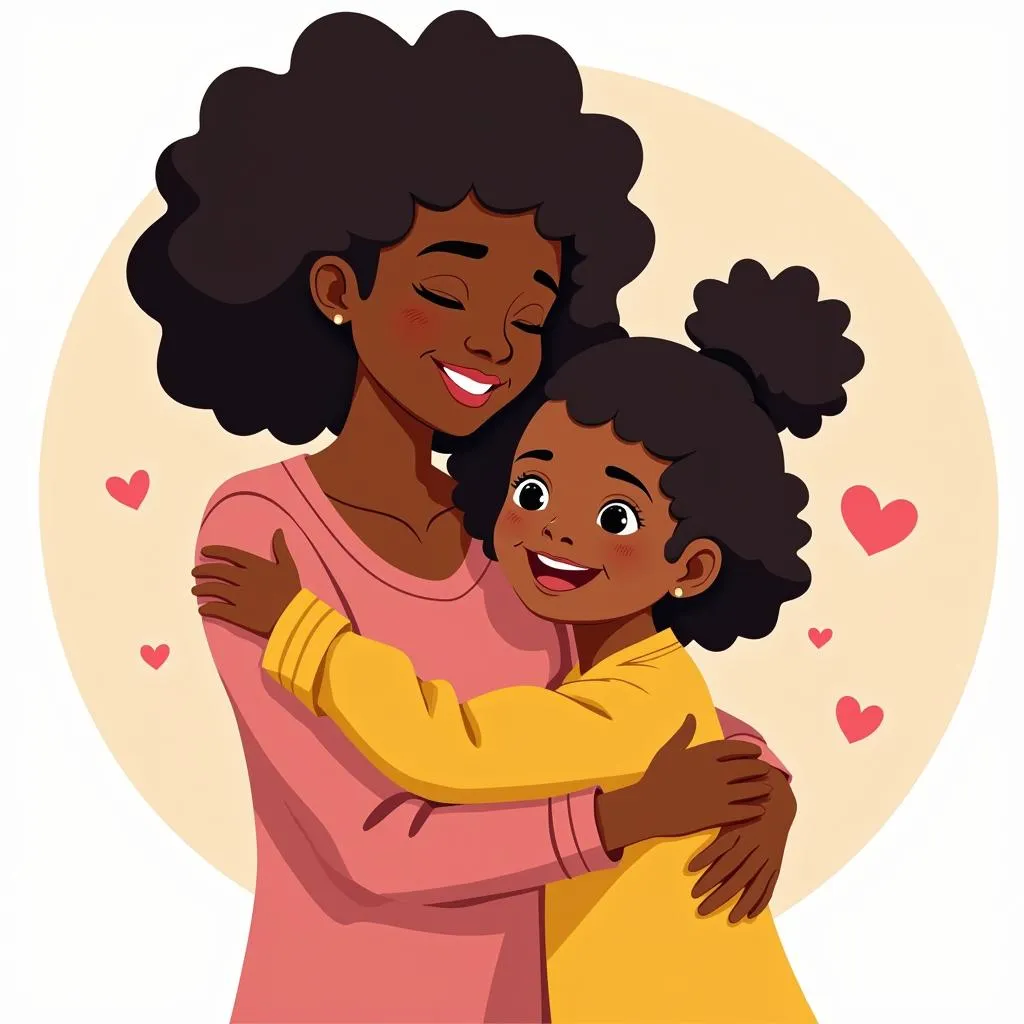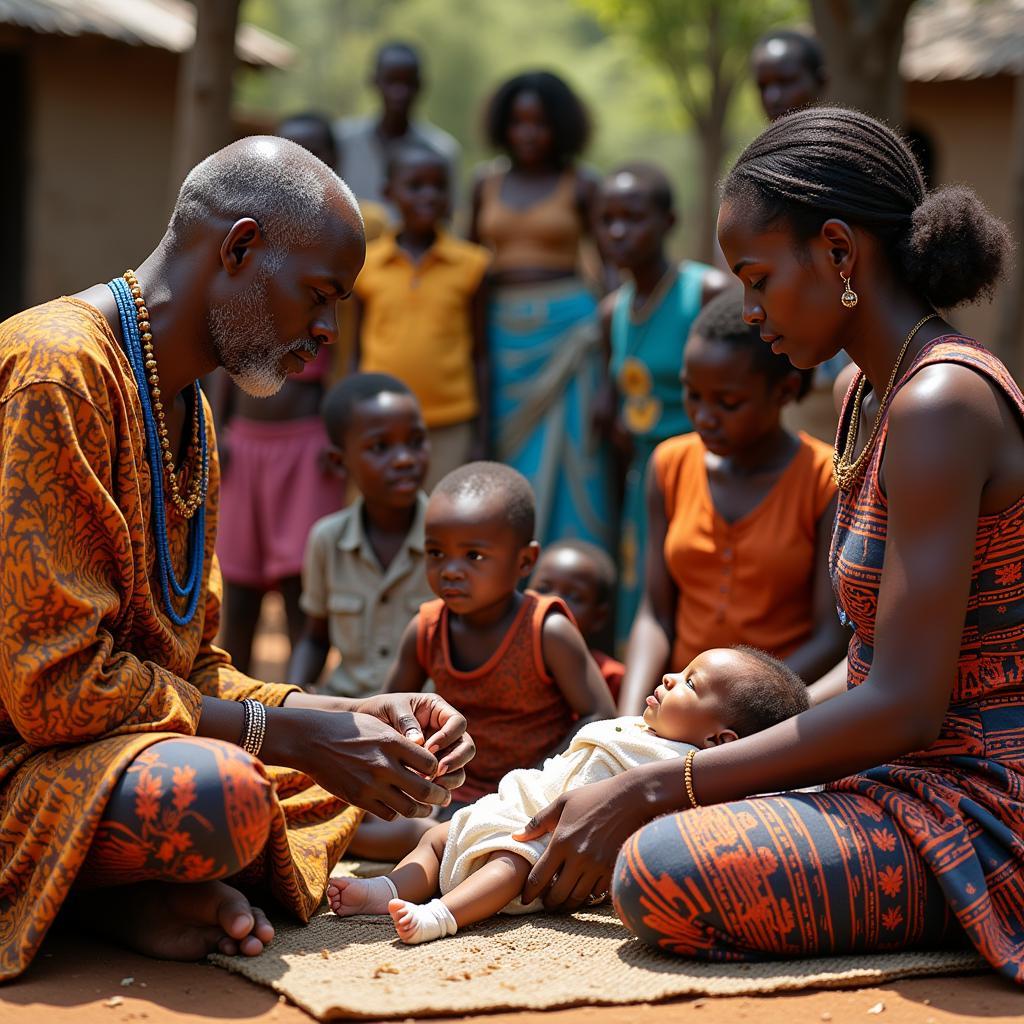Exploring the Vibrant World of African Makeup
African Makeup is a diverse and fascinating world, reflecting the continent’s rich cultural heritage and unique beauty traditions. From ancient practices to modern trends, African makeup is a celebration of individuality, creativity, and self-expression. It’s much more than just cosmetics; it’s a powerful form of storytelling, an art form passed down through generations, and a reflection of the diverse beauty found across the continent. Let’s dive into the colorful world of African makeup and discover its captivating stories.
See those stunning african bridal makeup pictures. Bridal makeup is a particularly significant aspect of African culture.
A Journey Through Time: The History of African Makeup
The history of African makeup is deeply intertwined with the history of the continent itself. Ancient civilizations, like the Egyptians, utilized natural ingredients such as kohl, ochre, and henna for both cosmetic and symbolic purposes. Kohl, a dark powder made from antimony or soot, was used to define the eyes, a practice still prevalent in many parts of Africa today. Ochre, a natural earth pigment, served as a foundation and blush, providing sun protection and enhancing natural features. Henna, a plant-based dye, was used to create intricate body art, particularly for special occasions and ceremonies. These ancient traditions laid the foundation for the diverse makeup practices seen across the continent today.
Regional Variations in African Makeup Styles
African makeup styles vary significantly across regions, reflecting the diverse cultures and traditions of the continent. In North Africa, influences from Berber and Arabic cultures are evident, with an emphasis on bold eye makeup and intricate henna designs. West African makeup often incorporates natural ingredients and emphasizes vibrant colors, reflecting the region’s rich textile and artistic traditions. East African makeup styles often highlight the eyes and incorporate natural oils and butters for skin hydration. Southern African makeup often embraces a more Westernized approach, incorporating modern trends while still maintaining a unique African flair. These regional variations showcase the dynamic and ever-evolving nature of African makeup.
Modern African Makeup Trends
Today, African makeup is experiencing a renaissance, with an increasing number of African makeup artists and brands gaining global recognition. Modern trends often blend traditional practices with contemporary techniques, resulting in innovative and captivating looks. The use of bold colors, intricate eye makeup, and glowing skin continues to be prominent, while experimentation with textures and finishes adds a modern edge. Social media platforms have played a crucial role in showcasing the creativity and diversity of African makeup artistry, inspiring makeup enthusiasts worldwide.
Check out this helpful african american makeup tutorial for beginners. It’s a great resource for those just starting to explore this exciting world.
What are some popular African eye makeup looks?
Smokey eyes, graphic liner, and bold eyeshadow colors are very popular.
How can I achieve a glowing skin look with African makeup?
Hydrating skincare and highlighting techniques are key to achieving this look.
Celebrating Natural Beauty: African Descendant Face Without Makeup
The concept of natural beauty is deeply ingrained in many African cultures. African descendant face without make up can be stunning. Many African women embrace their natural features and see makeup as an enhancement rather than a mask. The focus on skincare and healthy living is often prioritized, with natural ingredients and remedies playing a significant role in maintaining radiant skin. This appreciation for natural beauty is reflected in many contemporary African makeup trends, which emphasize enhancing natural features rather than concealing them.
“African makeup is about celebrating the beauty that already exists,” says Anika Noni Rose, a renowned makeup artist specializing in African cosmetics. “It’s about enhancing, not hiding.”
Embracing Individuality: African Bridal Makeup
African bridal makeup is an essential part of traditional wedding ceremonies, symbolizing beauty, fertility, and transition into married life. Elaborate hairstyles, adorned with beads, shells, and other embellishments, often complement the makeup. While regional variations exist, bridal makeup often features bold colors, intricate patterns, and a focus on enhancing the eyes. The application of makeup is often a communal activity, with female relatives and friends participating in the ritual, strengthening bonds and sharing cultural knowledge.
“Bridal makeup is not just about looking beautiful,” says Fatima Diallo, a Senegalese makeup artist. “It’s a ritual, a celebration of womanhood, and a connection to our ancestors.”
African Eye Makeup: A Window to the Soul
African eye makeup is often considered the centerpiece of African makeup looks. The eyes are seen as a window to the soul, and their enhancement holds symbolic meaning in many cultures. Kohl, eyeliner, and eyeshadow are used to create a wide array of captivating eye looks, from dramatic and bold to subtle and elegant. The emphasis on eye makeup reflects the importance of non-verbal communication and the expressive power of the eyes in African culture.
In conclusion, African makeup is a dynamic and evolving art form that reflects the continent’s rich cultural heritage and diverse beauty traditions. From ancient practices to modern trends, African makeup continues to inspire and captivate, celebrating individuality, creativity, and self-expression. It’s a journey through time, a testament to the power of beauty, and a vibrant expression of African identity.
FAQ
- What are some common ingredients used in traditional African makeup?
- How does African makeup differ from Western makeup styles?
- What are some popular African makeup brands?
- Where can I find tutorials on African makeup techniques?
- What are some tips for adapting African makeup trends to different skin tones?
- How can I incorporate natural ingredients into my African makeup routine?
- Where can I learn more about the history of African makeup?
Common Scenarios
- Scenario 1: A woman looking for inspiration for her wedding makeup.
- Scenario 2: A makeup artist wanting to learn more about African makeup techniques.
- Scenario 3: Someone interested in the cultural significance of African makeup.
Related Articles
- The History of Henna in African Culture
- Natural Skincare Remedies from Africa
- Modern African Fashion Trends
Need assistance? Contact us 24/7: Phone: +255768904061, Email: kaka.mag@gmail.com or visit us at Mbarali DC Mawindi, Kangaga, Tanzania.

